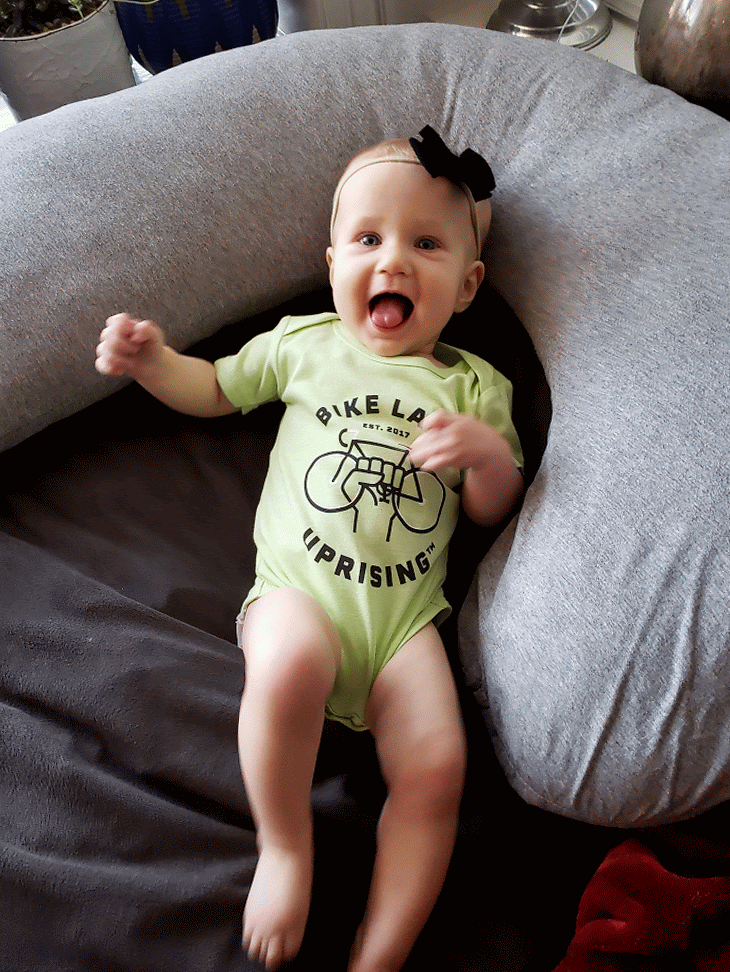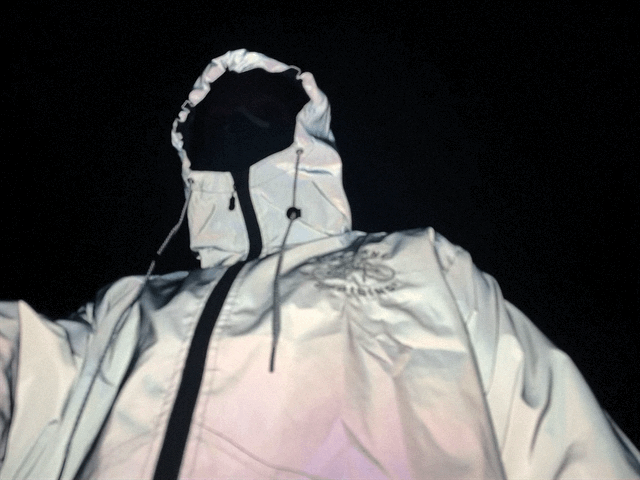Highlights From Our 2020 Work
- Bike Lane Uprising

- Jan 12, 2021
- 8 min read
Updated: Apr 14, 2021
1 - Year of growth
In 2020 we turned 3 and we continued to grow our platform, technology, and advocacy reach. Our data, insights, and reach were used to improve infrastructure, pass laws, influence employment policies, and help shape the culture surrounding biking. We worked on getting the word out and growing our platform by making ourselves available for countless interviews, meetings with city officials, and community biking groups. We went viral twice and were featured in around 50 news publications. Perhaps our most memorable mention was by the Obama Foundation.

2 - Improved our technology
We built, tested, and released a mobile app for iOS and Android users. Our mobile app is available in all of North America. We also released a series of enhancements to our bike lane obstruction maps. These updates included automating our maps, adding bike lanes to all cities, allowing users the ability to filter maps and obstructions on a variety of datasets and compare those datasets between cities. We also automated city insight calculations, enhanced usability on desktop and mobile, and added a new cluster map view.

3 - Worked with city officials
Ward leaders are crucial advocates for the biking community. This year, we continued working with city officials. We worked with ward leaders to squash disinformation campaigns by companies attempting to stonewall critical bike lane improvements. We helped Aldermen get community support for open streets. We also helped alders identify opportunities to make their specific wards safer to bike in. And we made it easier for the biking community to stay up to date with their ward leaders, by adding contact information to city pages, and creating public twitter contact lists, and surveying ward leaders on their biking infrastructure plans.
4 - Year of reckoning
We marched alongside millions of people around the world demanding change. We also mobilized to help protesters in Chicago and Minneapolis who were unjustly victimized by the very same systems they were working to change. After Chicago Police stole, damaged, and destroyed bikes from protesters, we helped publicize and promote a bike drive to replace those stolen bikes. We helped secure volunteers to help intake and repair bikes, lead a bikepool to and from the event, and helped get our followers to donate over 40 bikes in a single day! When Minneapolis protesters were jailed and had their bikes taken by police, we worked to reunite cyclists with their bikes and were in direct communication with Minneapolis State Police and ward leaders.
5 - Office of the Inspector General
We’ve continued to work with the Office of the Inspector General on a variety of incidents to ensure city departments are held accountable for their actions. We worked with them to highlight illegal and unsafe practices by police, dangerous practices by the department of transportation, and other various human rights violations. We are pleased to share, the Chicago Office of the Inspector General has released their plan of 22 topics they plan to investigate in 2021. Investigating bike lane obstructions, specifically those created by city employees or lanes poorly maintained is # 5 on their list.

Image source: CITY OF CHICAGO OFFICE OF THE INSPECTOR GENERAL, AUDIT AND PROGRAM REVIEW SECTION 2021 ANNUAL PLAN, DECEMBER 23, 2020, PG 15
6 - Fostering a BIG biking fam
This year, we felt it was important to use our platform as a conduit to bridge the gap between different biking groups around the city of Chicago. Instead of hosting our own group bike rides, we used our platform to amp up other biking groups around the city. We doubled down on promoting biking events held on the south and west sides of the city. We helped secure volunteers for these rides, and hosted bikepools to get folks to the events and back. Both Roll N Peace rides in Englewood (All in Phavor and the Juneteenth ride), the Streets Love Ride in Lawndale, and the HUGE newcomer group Streets Calling BC.
7 - Funded over 1,000 sets of USB rechargeable bike lights...and counting
We noticed there were many cyclists riding without bike lights this year. We thought, “Hey, wouldn’t it be cool if we could buy a bunch of bike lights and give them away to people without lights?” So then we did. We made the decision early on to purchase USB rechargeable lights. We didn’t want the lights to end up in a landfill, and we felt it was important the lights be the same quality and brightness we would feel comfortable riding with ourselves. We initially hoped to secure funding for 100 sets of bike lights (front and back), but this really resonated with our followers. Our followers from all over the US (and the UK) loved seeing happy photos of people receiving free bike lights, and sponsored them one set at a time for $10 per set. Multiple recipients have stated receiving bike lights has been the nicest thing that’s happened to them in MONTHS. In a year when there has been so much darkness and despair, it’s been an incredible experience to add so much light. So far bike lights have been distributed in Chicago, and we’re gearing up to give away bike lights in DC and Minneapolis as early as this week!
8 - Trusted source of knowledge sharing
This year we began sharing knowledge and insights by writing a variety of articles. These articles are usually focused on making biking more accessible, making rides more cozy and approachable, and offering help if things go wrong. Notable articles include:
9 - Helped pass a law
In 2019 we facilitated a workshop between the City of Chicago's Department of Finance & the Department of Transportation. The goal of the workshop was to better understand exactly what happens when bike lane obstructions are reported. During that workshop we journey mapped the entire process of ticket writing as well as the payment process. We identified a loophole in the law that negatively impacts the safety of Chicago cyclists. Essentially, the loophole allows drivers to get out of being fined for breaking the law, by simply driving away prior to the ticket being placed physically on the windshield of their car. Because the law requires tickets to be physically placed on the windshield, this legally prevents the Department of Finance from mailing tickets to drivers. In 2020, this loophole was closed.
10 - Making infrastructure news more accessible
We hired a film crew to record the Chicago Mayor's Bicycle Advisory Council meeting. For years we requested this meeting be recorded by the city or held during non business hours so that the public could attend without needing to take a day off from work. The city did not make those changes, so we continued to hire a film crew in 2020 to record this meeting. These recordings allow the community to stay informed regardless of zip code or work schedules. They also create a system of record that allows us to hold the city accountable. For example, the city claimed no safety concerns had been cited about their new protected bike lanes, however our recordings were able to prove multiple people over the years had pleaded with the city to make them more visible as cyclists, drivers, and pedestrians had been crashing into them resulting in bodily injuries including broken bones.
11 - Bikes to help feed
We helped spotlight groups and others working to feed the community like Love Fridges and mutual aid groups. When the mayor of Chicago lifted bridges, shut down ALL public transit, and halted the free lunch program for school kids, we responded within hours by building a directory of almost 100 mutual aid groups who needed emergency help delivering food.
12 - Registered trademark
This year Bike Lane Uprising® became a fully registered trademark, recognized by the United States Patent and Trademark Office. Even though we’re small, we’ve experienced multiple issues involving companies attempting to infringe on our brand. More to likely come on this next year 😖

13 - BLU branded merch
In an effort to help spread the word about our work and offset our costs, we’ve extended BLU branded merch. This year we’ve developed fully reflective jackets, waterproof backpack reflective covers, a variety of gaiters, a cycling cap, spoke reflectors in all colors of the rainbow, bike lights, baby onesies, and more. We’ve also worked to be size inclusive and partnered with an on demand printer so that we could extend sizes of our shirts and sweatshirts to span all sizes from infant to adult 5XL. We’ve also added opportunities for international shipping.
14 - Reaching out to companies directly
This year we reached out to countless companies directly to help them educate their drivers who block bike lanes. We’ve had countless email and phone call exchanges and have been able to change employment policies within a variety of companies. We’ve also continued our work with large entities like UIC, and have met with facilities, sustainability dept, campus police to identify specific opportunities to make biking safer around their campus.
15 - Biking during a pandemic
It’s been a rollercoaster of a year for biking. We helped bike shops who were absolutely slammed as people transitioned away from public transit and onto bikes. The world experienced a global biking boom, and bike shops were left in the lurch to keep up with induced demand, advocate to authorities the need for them to stay open, all the while keeping their staff and community safe. To help out, we created a guide of Bike Maintenance During Covid-19. The guide also included a directory of bike shops who were legally allowed to remain open during city and state lockdowns. Most importantly, the directory also allowed bike shops to include their COVID safety operating processes. We’ve heard from multiple bike shops they used this repository of information to shape their own operating practices.
16 - Human Protected Bike Lane Vigils
This year saw an increase in cyclist injuries and deaths. Late last fall we organized human protected bike lanes in Chicago and Minneapolis after cyclists were killed by drivers. This summer we had the unfortunate role of organizing not one, but two, vigils for a 13 year old boy named Issac Martinez who was killed while biking on the southwest side of Chicago. He was biking on a designated bike route and was killed by a hit and run driver. We organized a human protected bike lane at the site of the crash to show support to his family and friends and draw attention to the need for safe infrastructure. We biked to the site together as far as Evanston, to downtown, to Ashburn and back to host the vigil. His family attended the vigil and asked us to return a second day so that the media could attend. And we did.
We did all of our work for free.
Our platform, articles, bike lane obstruction maps, submission portal, data insights, events, and services have been made available for free. Our site doesn’t have a paywall. We do not sell email addresses or personal information to third parties. We do not spam our newsletters or platforms with ads. We have remained independent and have not taken corporate or VC funding. This has allowed us to hold companies and city departments accountable without bias. This is a tough year for many people. If you find our work valuable to the community and are in a position to support our work, please do. As we continue to grow, our costs continue to rise. We have big plans for 2021 but we can’t do it without the support of the community. Consider becoming a financial supporter of our work on a personal or corporate level. You can also support our work by purchasing items from our online store. All proceeds directly support our work.























